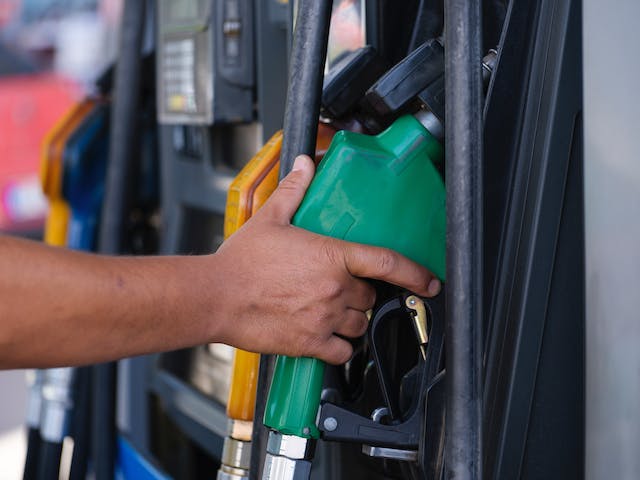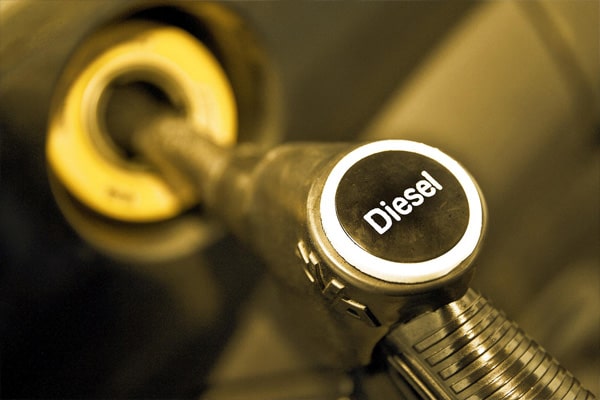What are the common differences between gasoline vs diesel? Which of these petroleum product is the better option and why?
Gasoline and diesel are both extracted and processed from crude oil but differ considering how they are used. While most vehicles on the road today use gasoline, diesel is a suitable fuel for big machinery.
Diesel is used by big machinery that requires more torque over horsepower, while gasoline is used for vehicles that require speed over durability and strength.
Stay with us as we discuss the differences between gasoline and diesel.

Gasoline
Gasoline is a common term used to describe a petroleum product that is a highly flammable liquid generally used as a fuel for spark-ignited internal combustion engines. It’s a flammable liquid consisting of a mixture of refined petroleum hydrocarbons.
It’s also referred to as gas (American) or petrol. It was first produced by distillation- separating the valuable fractions of crude.
According to Wikipedia, when gasoline is formulated as a fuel for engines, it’s chemically composed of organic compounds derived from the fractional distillation of petroleum and chemically enhanced with gasoline additives.
Gasoline was initially a by-product of the petroleum industry before it became a reliable fuel for automobiles. With its high-energy combustion, gasoline became the preferred automobile fuel.
Gasoline is a highly flammable liquid that emits about 2.3 kilograms (5.1 pounds) of carbon monoxide for every single litre burnt. It contains known carcinogens and can enter the Earth’s environment as an un-combusted liquid fuel.
Burning gasoline is harmful to the environment as oil production is responsible for approximately 32% of CO2 emissions across the world in 2021.
Also Read: Bulldozer vs Backhoe: Difference and Comparison
Diesel
Diesel is a fuel derived from petroleum but heavier than gasoline/petrol and it’s used to power diesel engines (usually big machinery), which burn this fuel using the heat produced when air is comprised.
Diesel fuel is also referred to as heavy oil or diesel oil. It’s specifically used in diesel engines- an internal combustion engine where fuel ignition takes place without a spark because of the compression of the inlet air, with the injection of fuel.
Diesel fuel is a more suitable fuel for big machinery. It’s durable as it releases more energy on combustion than equal volumes of gasoline, making diesel engines produce better fuel economy compared to gasoline engines.

Gasoline vs Types of Diesel
The most common source of producing diesel fuel is petroleum, but there are other sources it’s produced from. Diesel fuel can be produced by sources such as animal fats, biomass, biogas, coal liquefaction, and natural gas.
Petroleum Diesel
This is a type of diesel that is generally known. It’s also referred to as fossil diesel, mineral diesel or petrodiesel. Petroleum diesel is processed and produced from the fractional distillation of crude oil at a heating temperature ranging from 200 to 350 degrees Celsius at atmospheric pressure.
Biodiesel
Biodiesel is a type of diesel fuel extracted from animal fats or vegetable oil. This type of diesel fuel can be produced from various oil types, with rapeseed oil being the most common type used in European countries, while soyabean oil is commonly used in the United States.
Also Read: 5w20 vs 5w30: Difference and Comparison
Synthetic Diesel
Synthetic diesel is a type of diesel fuel that can be produced from carbonaceous materials- materials such as coal, natural gas, biomass, biogas, etc.
The process of producing this type of diesel fuel is by gratifying raw materials into synthetic gas. After it’s purified, the material is then converted to a synthetic diesel by the Fischer-Tropsch process.
DME (Dimethyl ether)
Dimethyl ether is a synthetic gaseous diesel fuel that emits very little amount of soot compared to petroleum diesel fuel.
Hydrogenated Oils and Fats
This type of diesel fuel simply involves the process of converting the triglycerides contained in animal fats and vegetable oil into alkanes.
This is usually done by refining and hydrogenation like H-Bio or Neste Renewable Diesel.
Gasoline vs Diesel: Key Differences between Gasoline and Diesel
Gasoline is a flammable liquid consisting of a mixture of refined petroleum hydrocarbons, while diesel is a fuel derived from petroleum but heavier than gasoline/petrol, used to power diesel engines (usually big machinery).
While gasoline engines are known for faster acceleration, diesel engines offer durability and torque as they are preferred in heavy-duty vehicles.
Gasoline and diesel are both refined from crude oil, but the former is more refined than the latter.
Gasoline is a flammable fuel that burns faster compared to diesel. Gasoline is used for vehicles that require speed over durability and strength.
Diesel is thicker in density, while gasoline is thinner and more volatile. Diesel fuel evaporates slowly and produces about 20% more energy compared to gasoline because it has a higher energy density.
This is the main reason diesel engines are preferred in heavy-duty vehicles and big machinery. Diesel engines produce more energy at lower RPMs.
Unlike diesel engines, gasoline engines are used in vehicles that require less torque but more horsepower for acceleration.
Also Read: Blueprint vs Schematic: Difference and Comparison
Gasoline vs Diesel: Gasoline Engine
A gasoline engine functions by burning fuel in the combustion which causes an explosion in the combustion chamber. The process of combustion pushes down the piston which moves the crankshaft, resulting in the movement of the wheels.
Diesel and gasoline engines use the same concept but the process in the combustion in both engines makes the difference.
The gasoline engine functions when fuel is mixed with air and compressed by the piston. A spark plug makes a little spark which causes an explosion also known as combustion.
In a diesel engine, no spark is needed in the process. Instead, diesel fuel needs to be vaporized before it’s sent to the combustion chamber where it ignites at a high temperature.
Gasoline vs Diesel: Fuel Efficiency
Fuel efficiency is also a major difference between gasoline and diesel.
Unlike gasoline engines, diesel vehicles are more fuel-efficient as they produce more energy at lower RPMs.
Diesel is thicker in density, while gasoline is thinner and more volatile. Diesel fuel evaporates slowly and produces about 20% more energy compared to gasoline because it has a higher energy density.
There is also a difference in higher compression ratio- which is related to thermal efficiency.
Compared to a diesel engine, a gasoline engine can never reach a high compression ratio. If this happens in a gasoline engine, it causes excessive heat that would ignite the fuel, hence leading to engine damage.
Gasoline vs Diesel: Engine Durability
Diesel engines are more durable compared to gasoline engines. They are preferred and used in heavy-duty vehicles and big machinery that require more torque than horsepower.
Diesel engines are durable and can operate covering more miles before any maintenance or repair is required.
The average life expectancy of a diesel engine is about 250,000 to 300,000 miles. You will hardly see a gasoline engine vehicle with this kind of mileage.
Also Read: Bar vs PSI: Difference and Comparison
Gasoline vs Diesel: Comparison Chart
| Gasoline | Diesel | |
| Engine type | Spark-ignited internal combustion | Compression-ignited internal combustion |
| Usage | Common in passenger vehicles | Favoured in trucks and heavy machinery |
| Combustion | Requires a spark plug | Ignites by combustion |
| Emission | Lower particulates and NOx. | Higher particulates and NOx. |
| fuel efficiency | Lower efficiency and higher power | Higher efficiency and more torque |
Conclusion
Gasoline is a flammable liquid consisting of a mixture of refined petroleum hydrocarbons, while diesel is a fuel derived from petroleum but heavier than gasoline/petrol, used to power diesel engines (usually big machinery).
Diesel engines are more durable compared to gasoline engines. Diesel is thicker in density, while gasoline is thinner and more volatile. Diesel fuel evaporates slowly and produces about 20% more energy compared to gasoline because it has a higher energy density.

Leave a Reply